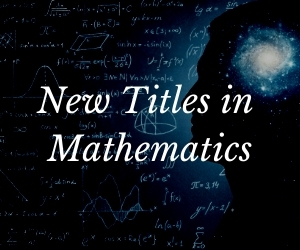System Upgrade on Tue, May 28th, 2024 at 2am (EDT)
Existing users will be able to log into the site and access content. However, E-commerce and registration of new users may not be available for up to 12 hours.For online purchase, please visit us again. Contact us at customercare@wspc.com for any enquiries.
This book provides an interdisciplinary approach to one of the most fascinating and important open questions in science: What is quantum mechanics really talking about? In the last decades quantum mechanics has given rise to a new quantum technological era, a revolution taking place today especially within the field of quantum information processing; which goes from quantum teleportation and cryptography to quantum computation. Quantum theory is probably our best confirmed physical theory. However, in spite of its great empirical effectiveness it stands today still without a universally accepted physical representation that allows us to understand its relation to the world and reality.
The novelty of the book comes from the multiple perspectives put forward by top researchers in quantum mechanics, from Europe as well as North and South America, discussing the meaning and structure of the theory of quanta. The book comprises in a balanced manner physical, philosophical, logical and mathematical approaches to quantum mechanics and quantum information. Going from quantum superpositions and entanglement to dynamics and the problem of identity; from quantum logic, computation and quasi-set theory to the category approach and teleportation; from realism and empiricism to operationalism and instrumentalism; the book considers from different angles some of the most intriguing questions in the field.
From Buenos Aires to Brussels and Cagliari, from Florence to Florianópolis, the interaction between different groups is reflected in the many different articles. This book is interesting not only to the specialists but also to the general public attempting to get a grasp on some of the most fundamental questions of present quantum physics.
Sample Chapter(s)
On the Notion of Truth in Quantum Mechanics: A Category-Theoretic Standpoint (353 KB)
Contents:
- On the Notion of Truth in Quantum Mechanics: A Category-Theoretic Standpoint (V Karakostas and E Zafiris)
- A Logical Account of Quantum Superpositions (D Krause and J R B Arenhart)
- Mixing Categories and Modal Logics in the Quantum Setting (G Cinà)
- Binary Gates in Three Valued Quantum Computational Logics (G Sergioli, A Ledda and R Giuntini)
- The GTR Model: A Universal Framework for Quantum-Like Measurements (D Aerts and M S de Bianchi)
- 'Probabilistic Knowledge' as 'Objective Knowledge' in Quantum Mechanics: Potential Immanent Powers Instead of Actual Properties (C de Ronde)
- On When a Semantics is not a Good Semantics: The Algebraisation of Orthomodular Logic (T Kowalski, F Paoli and and R Giuntin)
- Von Neumann, Empiricism and the Foundations of Quantum Mechanics (O Bueno)
- The Born Rule and Free Will: Why Libertarian Agent-Causal Free Will is Not "Antiscientific" (R E Kastner)
- Fuzzy Approach for CNOT Gate in Quantum Computation with Mixed States (G Sergioli and H Freytes)
- A Modal Logic of Indiscernibility (D Krause, J R B Arenhart and P Merlussi)
- The Possibility of a New Metaphysics for Quantum Mechanics from Meinong's Theory of Objects (M Graffigna)
- Entanglement of Formation for Werner States and Isotropic States via Logical Gates (C Bertini, M L D Chiara and R Leporini)
- Time, Chance and Quantum Theory (A Sudbery)
- A Topos Theoretic Framework for Paraconsistent Quantum Theory (B Eva)
- A Possible Solution to the Second Entanglement Paradox (D Aerts and M S de Bianchi)
Readership: University students and researchers interested in the foundation of quantum mechanics.


























